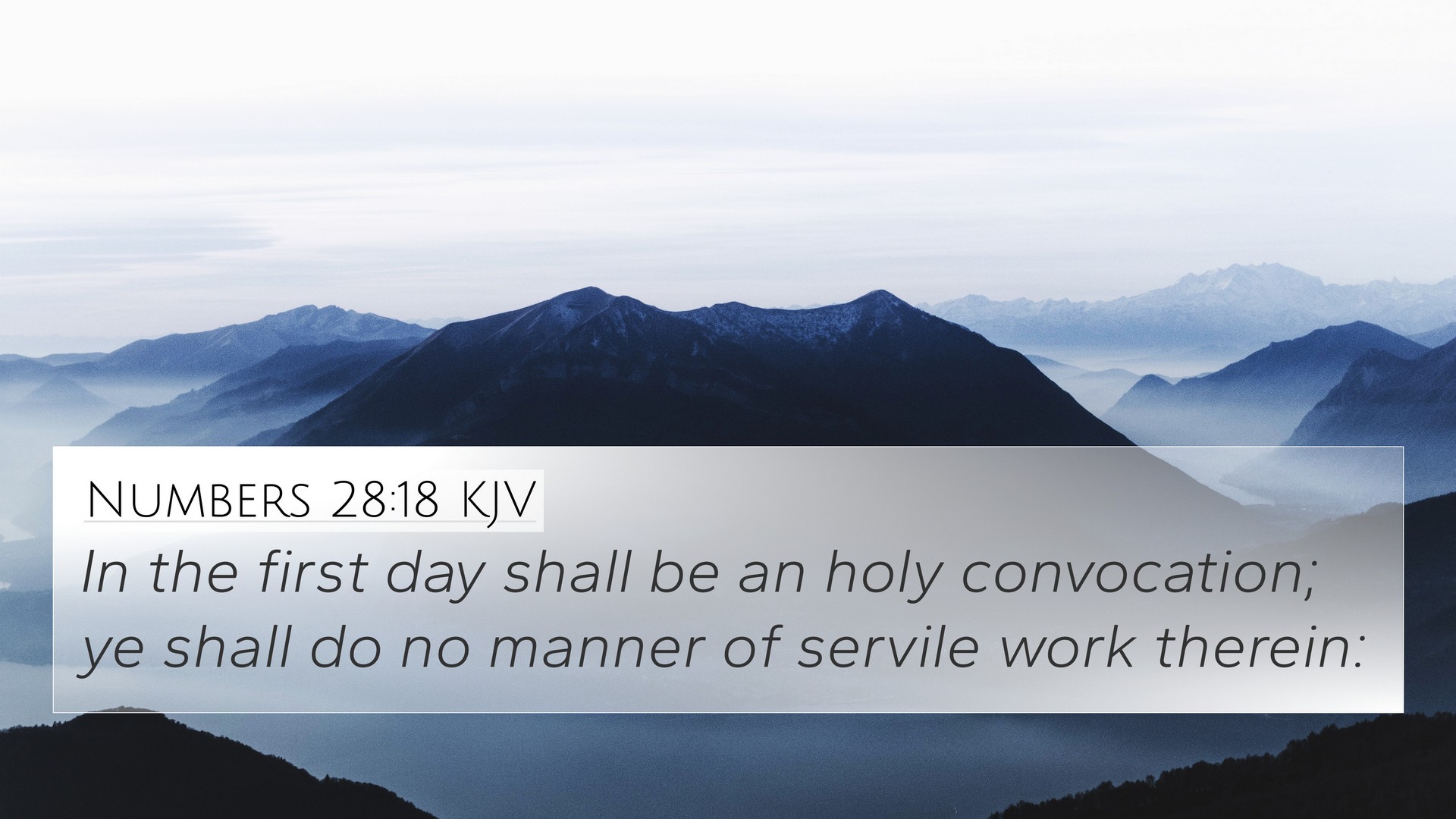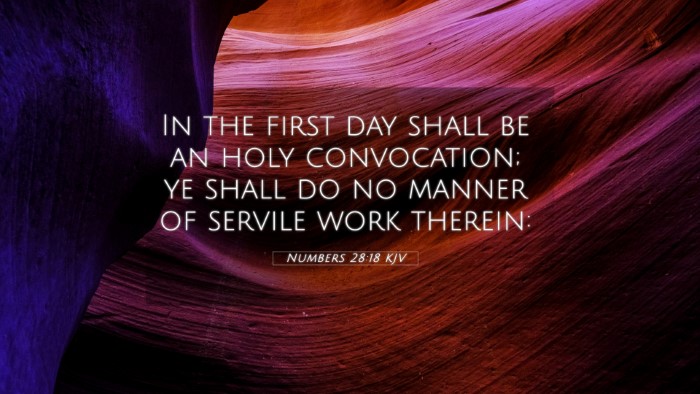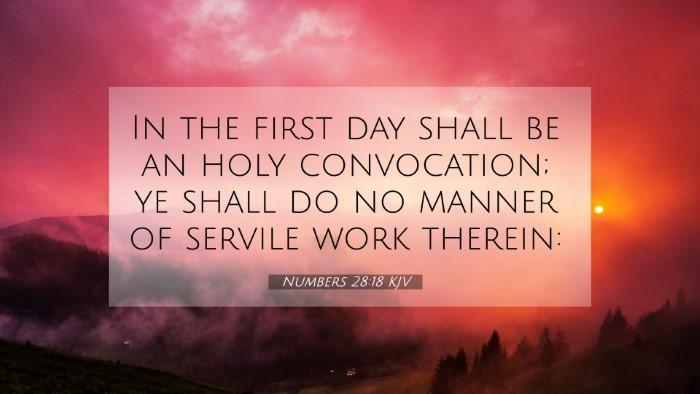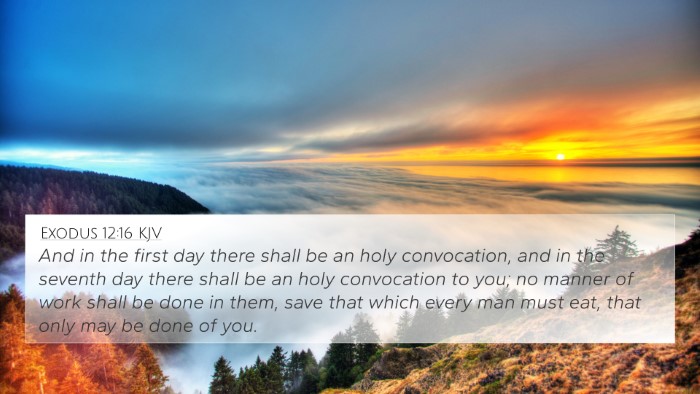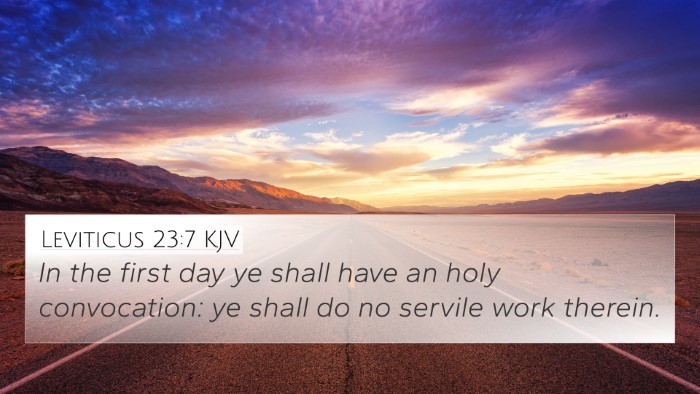Understanding Numbers 28:18
Bible Verse: Numbers 28:18 - "In the first month, on the fourteenth day of the month, is the passover of the Lord."
Meaning and Interpretation
Numbers 28:18 presents a directive regarding the observance of the Passover, a central feast in the Jewish calendar that commemorates the Israelites’ exodus from Egypt. The context of this command reflects God's ongoing engagement with His people, ensuring they remember and celebrate the pivotal moments of their history.
Key Insights from Commentaries
- Matthew Henry: Henry emphasizes the significance of the Passover, noting it as a feast of remembrance. It serves not only as a historical marker but as a present reminder of God’s deliverance. The instruction to observe the Passover at a specific time signifies the importance of divine timing and regularity in worship.
- Albert Barnes: Barnes highlights the connection of the Passover with other festivals, illustrating how it forms a part of the larger framework of Israel's religious observances. He discusses the theological implications of remembering the Passover as a means of spiritual renewal and national identity.
- Adam Clarke: Clarke offers an analysis of the dates and rituals associated with Passover, focusing on the symbolism underlying the day and the lamb’s significance. The mention of the "fourteenth day" is critical as it establishes a calendar framework that ties the people to their agricultural and spiritual cycles.
Bible Verse Cross-References
To deepen our understanding of Numbers 28:18, let’s explore several related Bible verses that provide additional context and insight:
- Exodus 12:1-14 - Details the establishment of the Passover and its significance.
- Leviticus 23:5 - Confirms the timing of the Passover in relation to the Feast of Unleavened Bread.
- Deuteronomy 16:1-3 - Provides instructions for celebrating the Passover and its requirements.
- Matthew 26:17-19 - Connects the Passover observance in the New Testament context, showcasing Jesus’ final Passover meal with His disciples.
- 1 Corinthians 5:7 - Refers to Christ as our Passover lamb, tying the Old Testament celebration to New Testament fulfillment.
- John 1:29 - John the Baptist identifies Jesus as the Lamb of God, linking Him to the Passover theme of sacrifice.
- Hebrews 11:28 - Mentions the faith of Moses in keeping the Passover, further emphasizing its importance throughout Scripture.
Conclusion
The command in Numbers 28:18 to observe the Passover is imbued with layers of meaning that resonate throughout the biblical narrative. As we engage with the tool of Bible cross-referencing, we can uncover a multitude of connections between this verse and the broader themes of deliverance, sacrifice, and covenant. The Passover not only commemorates historical events but also invites contemporary believers into a deeper understanding of God's ongoing redemptive work.
Further Study Suggestions
As one engages in cross-reference Bible study methods, consider:
- Investigating the theological implications of the sacrificial system in the Old Testament and its fulfillment in the New Testament.
- Exploring the significance of the timing of the Passover in relation to the agricultural calendar.
- Studying how the themes of deliverance in the Passover are mirrored in the teachings of the New Testament.
The understanding of Numbers 28:18 expands through the comparative Bible verse analysis, encouraging deeper engagement with both the Old and New Testaments. This inter-Biblical dialogue helps establish a thematic continuity that enriches spiritual growth and understanding.
